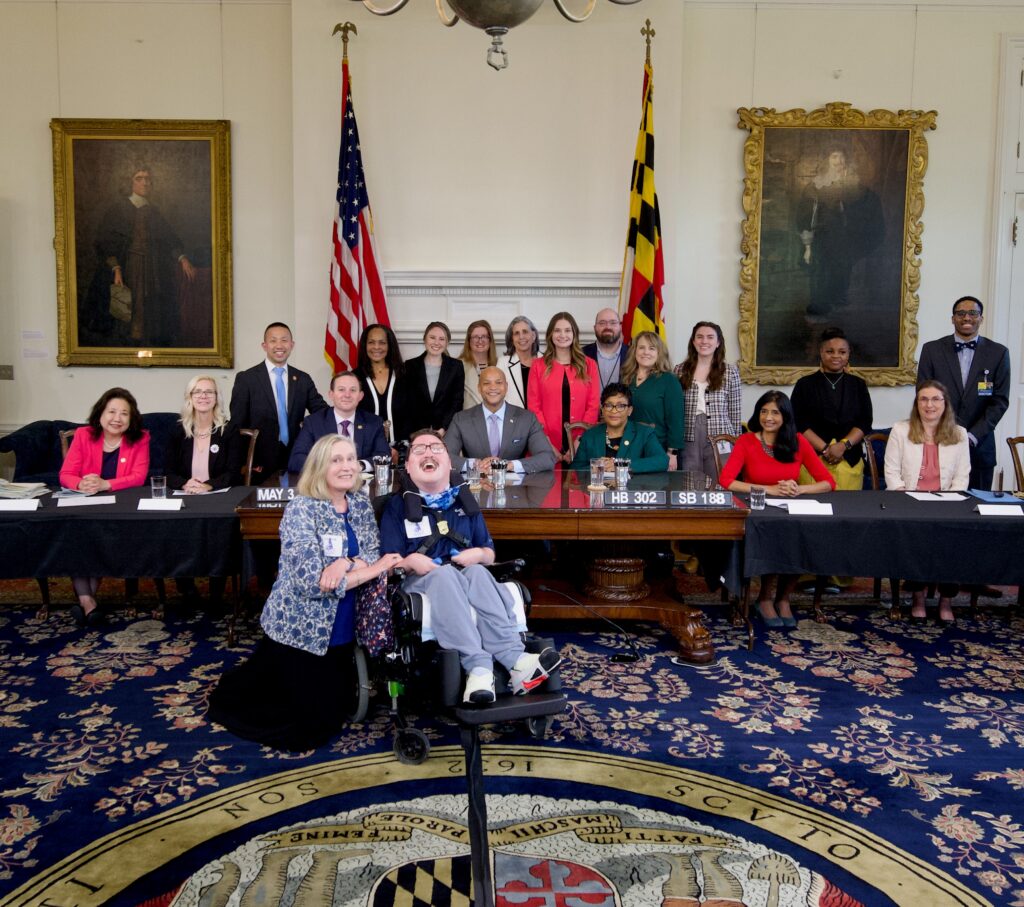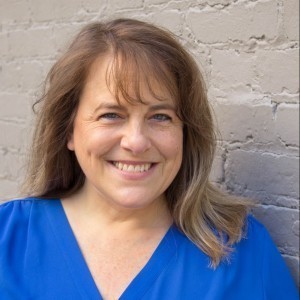by Mary Morlino
Founder, MarylandRARE
MarylandRARE is thrilled to announce the signing of Senate Bill 188 (SB 188)/House Bill 302 (HB 302) – Establishing a Rare Disease Advisory Council (RDAC). MarylandRARE and members of the rare disease community gave both oral and written testimony on the critical importance of establishing a RDAC for Maryland.
MarylandRARE gathers the rare disease community together for the shared mission of bringing advocacy into action to effect change and improving the quality of life for the rare disease community in Maryland.

Rare Disease Advisory Council
- What does a RDAC do?
- Make recommendations to the state legislature, medical review boards and state agencies on policy and best practices for healthcare on behalf of the rare disease community
- Publish statewide resources to increase access to information to improve the care for the rare disease community
- Helps coordinate collaborations with experts within the state
- Raise awareness of rare disease in the state
- Why do RDACs Matter?
- Official recognized council who works to improve the lives of rare disease patients, families, caregivers/partners.
- Work may include conducting studies to evaluate the rare disease community in a given state – where they are located, what services are available, what services are needed.
- Build relationships and avenues for collaboration
- Helps to get the support of state legislative rare champions to further improvements for the rare disease community
- Brings together multiple stakeholders – legislators, healthcare providers, researchers, pharmaceutical representatives, health insurance plan representative, members of the health department, hospital administrators, and most importantly – rare disease patients and caregivers to collaborate on improving the lived experience of the rare disease community
- How is a RDAC created?
- Established through individual state legislation and signed into law by the governor
- Are you interested in establishing a RDAC in your state? For more information on how to get involved.
 Mary Morlino is the RARE Concierge – Patient Services Manager at Global Genes, and has over 16 years of experience in working, advocating, and volunteering in the rare disease space. She founded MarylandRARE, a state-based patient advocacy organization, and also serves as the Global Global Sarcoidosis Clinic Alliance Support Leader (GSCAS) with Johns Hopkins Medical Center for the Foundation for Sarcoidosis Research (FSR).
Mary Morlino is the RARE Concierge – Patient Services Manager at Global Genes, and has over 16 years of experience in working, advocating, and volunteering in the rare disease space. She founded MarylandRARE, a state-based patient advocacy organization, and also serves as the Global Global Sarcoidosis Clinic Alliance Support Leader (GSCAS) with Johns Hopkins Medical Center for the Foundation for Sarcoidosis Research (FSR).
Jennifer Payne offered a written testimony to the committee to explain how a RDAC could help those in the rare disease community in the future:
Dear Chair Griffith and Members of the Senate Finance Committee,
My name is Jennifer Payne, and I am a constituent of District 12. As an ambassador for the greater Maryland rare disease community, I thank you for the opportunity to submit my testimony in support of SB 188. Not only it is a critical imperative for Maryland leadership to engage – as partners with rare disease patients, for shaping policy development relevant to the unmet needs and concerns on equitable, quality, and affordable access to specialty treatment, but it is a moral imperative to identify and eliminate the inappropriate and discriminatory barriers preventing individuals diagnosed in the State of Maryland from obtaining the continuity and quality of care across all stages of life.
Every baby born in the United States is screened for the early identification of phenylketonuria (PKU) to prevent severe disability. Hence, this is my story, being among the first diagnosed with PKU (1973) in the early days of Maryland’s newborn screening program. And, 50 years later (as 2023 marks my milestone birthday), I can tell you I have been a lifelong, proactive champion on medical nutrition equity for inclusion on the whole health equation – to the level of the courts. My whole health, mentally, physically, and spiritually has been sacrificed at the expense of having (and continuously fighting) single handedly – over the last seven years and ongoing – for ending discriminatory provision of health care services by insurers using PKU – and my age – as arbitrary and exclusionary criteria prohibiting access and coverage on the treatment I need to survive and thrive – even into adulthood.
My PKU story of prevention has become a story of social injustice and discrimination. I am not alone. Many in the rare disease community share such common struggles and obstacles that are often 100% preventable and socially unjustifiable, and result in unnecessary suffering and disease progression. I wholeheartedly welcome support for the establishment of a RDAC to serve as a health advocate for all Marylanders, like myself, in need of representation and a special conduit to amplify vulnerable voices in health matters that have direct, and more often than not, negative implications and risk.
Now is the time for us all to partner and be change ambassadors in this cultural shift that embraces diversity, equity, inclusion, and accessibility in the ways we live and the ways we care – for rare disease as part of the whole health equation. We must ensure the necessary improvements to Maryland’s life saving newborn screening program stay strong. We must educate, as I have done with University of Maryland medical students – the future doctors of America – to think out of the box and equip them, the greater public, and all stakeholders – with the requisite tools to recognize, diagnose, facilitate, and optimize treatment specific to rare diseases. We can establish a published list or compendia to allow for transparency, accessibility, and education in the process.
Knowledge is power, and patients are often the experts in their own rare diseases. Will you listen? We need novel reimbursement payment models that allow coverage for specialty treatment accordingly – and equitably – and with inclusion keeping pace with innovative technology platforms. Rare disease patients only ask for a fair shake of such readily available resources, not to be targets as demonstrated by my example.
The RDAC serves to empower rare disease patients as partners – from the point of the research bench (informing future studies), to diagnoses, to getting the treatment into the hands of those that need it most and at the right time – for life. Until there is a cure, for change ambassadors and partners with RDAC, the story, as with my PKU story, does not end at diagnosis.
Thank you,
Jennifer Payne, PharmD, MAPP
Independent Advocate, Adult with PKU

Stay Connected
Sign up for updates straight to your inbox.
